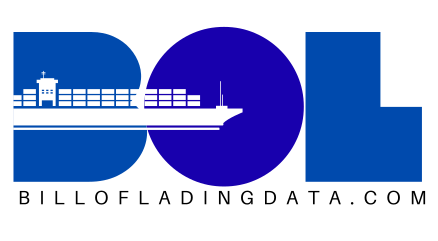Boost Your Market Strategy with Accurate Trade Insights
Unlock Global Market Insights with Bill of Lading Data
In today’s hyper-connected economy, the difference between a thriving international trade business and one that merely survives often comes down to a single factor: information. For exporters, importers, and global investors, this information is not just anecdotal—it’s tangible, verifiable, and extensive. The key lies in the strategic use of global trade data.
For years, expansion strategies relied on guesswork, intuition, or outdated reports. Now, modern traders and investors have access to a far more powerful tool: Bill of Lading Data. By leveraging up-to-date trade statistics, businesses can uncover opportunities, minimize risks, and outperform competitors. Accessing this data isn’t just an advantage—it’s essential for making informed, strategic decisions in the global marketplace.
1. Replacing Guesswork with Data-Driven Strategy
What exactly is global trade data? It’s a comprehensive record of goods and services exchanged between countries, including details such as shipment volumes, product categories (like Harmonized System codes), values, origins, and destinations.
Using this data means transforming raw numbers into actionable insights. Companies can identify market trends, optimize strategies, and make smarter decisions. Think of it as a GPS map for your business expansion: instead of entering a market blindly, you can pinpoint which countries and product sectors are poised for growth. With these insights, every investment or operational shift is backed by solid, empirical evidence.
2. Spotting Future Growth with World Trade Trends
The most significant benefit of analyzing international trade data is the ability to anticipate market trends before competitors. Trade patterns change rapidly—a booming market today may stagnate tomorrow, and emerging economies can quickly become major consumers.
By monitoring changes in import and export volumes, businesses can:
- Identify Emerging Markets: A surge in building material imports in a small country signals infrastructure growth, opening opportunities for related equipment and services.
- Track Product Lifecycle Shifts: A drop in shipments of a classic commodity may indicate technological changes or regulatory shifts, prompting alternative product sourcing.
- Validate Demand: Before expanding production, data confirms whether the target market is importing similar products and whether demand is increasing.
This analysis provides the foresight to adjust strategies, allocate resources efficiently, and stay one step ahead in a competitive landscape.
3. Deep Dive with Import/Export Analysis
For businesses engaged in cross-border trade, the real strategic value of Bill of Lading Data comes through detailed import/export analysis.
Competitor and Partner Insights
Export records reveal competitors’ major markets, shipment volumes, and operational scale. This information is invaluable for benchmarking and devising strategies to outperform rivals.
Import records help businesses:
- Identify Potential Buyers: Discover companies consistently importing the products you sell—ready-made high-volume leads.
- Find Reliable Suppliers: Evaluate manufacturers’ export history to ensure dependable supply chains.
Supply Chain and Logistics Optimization
Analyzing trade flows helps identify the busiest ports and shipping routes for your product category, enabling:
- Lower freight costs
- Reduced transit delays
- More efficient logistics
By converting raw data into operational intelligence, businesses gain a tangible competitive advantage.
4. Gain Strategic Advantage in Cross-Border Trade
The ultimate power of Bill of Lading Data lies in risk management and strategic decision-making:
- Pricing Strategy: Knowing landed costs in target markets allows profitable and competitive pricing.
- Risk Mitigation: Data highlights supply chain vulnerabilities, such as reliance on politically unstable regions.
- Compliance and Regulation: Access to regulatory documentation ensures adherence to tariffs, sanctions, and customs rules, avoiding costly penalties.
With these insights, major business decisions—from launching foreign subsidiaries to negotiating multi-year contracts—become smarter and less risky.
Make Smarter Market Decisions with Bill of Lading Data
Leverage Bill of Lading Data to:
- Analyze global trade trends
- Identify emerging markets
- Track competitors’ activity
- Optimize supply chains
- Mitigate operational and strategic risks
By transforming trade statistics into actionable insights, your business gains a strategic edge and a roadmap for informed international expansion.
Conclusion
International trade is dynamic, challenging, and full of opportunity. Companies that thrive are those that treat global trade data not as a routine tool but as a strategic asset. By consistently analyzing import/export trends and monitoring world trade movements, businesses can gain the insights needed to make faster, smarter, and more profitable decisions. Harness the power of Bill of Lading Data—your essential guide to success in the global marketplace.





